The Morley Safer Award, a program of the Briscoe Center for American History at The University of Texas at Austin, was created in honor of Morley Safer, whose papers are part of the center’s news media history collections. The Briscoe Center is grateful for the support and active participation of Jane Fearer Safer and Sarah Safer in the development of the award.
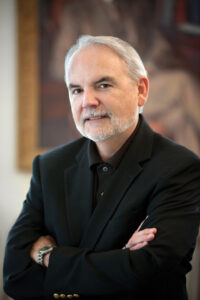
Historians do what they do because, like journalists, they want the conversation about American identities, origins, and values to remain rooted in evidence. Contemporary terms such as “fake news” and “lamestream media” demonstrate that we inhabit an era that increasingly undervalues the power of evidence—a concern for both historians and journalists. So it was with great enthusiasm and anticipation that, with the support of Jane and Sarah Safer, the Briscoe Center presented the Morley Safer Award for Outstanding Reporting. Celebrating and supporting the integrity, tenacity, and vibrancy of reporters like Morley has become critical to the health of our professions and perhaps even the health of our democracy.
The Morley Safer Award for Outstanding Reporting honored those who embodied Morley’s distinctive strengths: historical perspective, overlooked stories, unexpected insights, complexity, wit, and eloquence. I am grateful to Jane, Sarah, and the entire Morley Safer Award Steering Committee for their energy and guidance in this endeavor. I was truly humbled by the positive response of so many of today’s top journalists who have agreed to serve as jurors.
In many ways, journalists are history’s first responders, which is why the Briscoe Center collects their papers, archives, and photographs. Based at The University of Texas at Austin, the news media history collection began with the papers of the legendary Walter Cronkite, and since then the center has amassed nearly three miles of archival materials across hundreds of separate collections, including the personal papers of reporters, photojournalists, and media producers, as well as over 5,000 newspaper titles and millions of photographs. Together these collections document the people, events, and ideas that have shaped America. Journalists continue to document an evolving America, and the Briscoe Center is proud to help preserve their work for future generations.
For those of you who submitted material, thank you for participating in this important program and for all the work you do to ensure that the public remains both informed and challenged.
About the Executive Director
Don Carleton, Ph.D., founding executive director of The University of Texas at Austin’s Dolph Briscoe Center for American History, is a scholar of news media and U.S. political history. Carleton served as chief historical advisor to legendary CBS Evenings News anchor Walter Cronkite for his best-selling memoir A Reporter’s Life. Carleton first met Morley Safer while working with Cronkite. Carleton is the author of ten books, including Red Scare and Conversations with Cronkite, for which Safer wrote the foreword. Carleton served as an advisory board member for the Academy of Television Arts and Sciences Foundation’s Pioneers of Television oral history project from 1996 to 2009 where he conducted video interviews with more than two dozen major figures in the history of broadcast news. Early in his career, Carleton saw the immense value of preserving journalists’ papers for teaching and researching American history. Beginning with Cronkite’s papers, Carleton began acquiring material to form one of the most comprehensive collections of history’s “first drafts” in existence.
The Morley Safer Award Steering Committee was composed of academics and news media professionals as well as the Safer family. They guided the development of the award program.
The Morley Safer Award Panel of Nominators is composed of American and Canadian news media professionals across multiple platforms. Nominators seek broadcast, print, radio and digital news stories that embody Morley Safer’s commitment to original reporting grounded in historical context and informed perspective. Nominators encourage reporters who have produced that kind of work to submit their story or series of stories for consideration.
The Morley Safer Award Jury is comprised of academic and news media professionals. The jury sought stories that embodied Morley Safer’s commitment to original reporting grounded in historical context and informed perspective. Among the criteria, jurors selected stories that reflected Safer’s distinctive strengths as a reporter: an overlooked story or a familiar story presented from a fresh perspective; an illuminating profile of a person or place that offers unexpected insights; in-depth investigation, regardless of risk; approachable storytelling about complex issues; and meticulous and compelling use of language.
Don Carleton
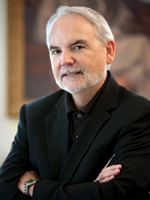
Don Carleton, Ph.D., has been executive director of The University of Texas at Austin’s Dolph Briscoe Center for American History since its creation in 1991. From 1979 until 1991, Dr. Carleton was head of the university’s Eugene C. Barker Texas History Center. After earning his doctorate in U.S. history from the University of Houston, Carleton served as founding director of the Houston Metropolitan Research Center (HMRC), an urban history archives project sponsored by Rice University, the University of Houston, and the City of Houston.
Dr. Carleton is the author of ten books, including Conversations with Cronkite and the prize-winning publications Red Scare and A Breed So Rare. He also was a researcher and chief historical advisor to former CBS newsman and anchor Walter Cronkite for his best-selling memoir A Reporter’s Life. He served as the principal curator for the major exhibit Cronkite: Eyewitness to a Century, which was displayed at the LBJ Presidential Library and Museum in Austin in 2010. Dr. Carleton has been a historical commentator for several television documentaries, including the PBS documentary JFK: Breaking the News (2003) and the National Geographic Television Channel’s The President’s Photographer (2010). He served from 1996 until 2009 as an oral historian and advisory board member for the Academy of Television Arts and Sciences Foundation’s “The Interviews: An Oral History of Television” project for which he conducted videotaped interviews with more than two dozen major figures in the history of broadcast news, including David Brinkley, Andy Rooney, Ed Bradley, Barbara Walters, Jim Lehrer, and Daniel Schorr. Carleton also was the executive producer of the documentaries When I Rise (2010) and Cactus Jack: Lone Star on Capitol Hill (2016), which were nationally broadcast on PBS.
Dr. Carleton holds the university’s J. R. Parten Chair in the Archives of American History.
Tracy Dahlby
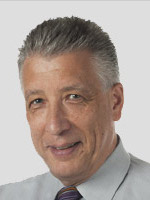
Tracy Dahlby is a career journalist and nonfiction storyteller. He has served as Northeast Asia bureau chief for The Washington Post, Tokyo bureau chief for Newsweek and managing editor of Newsweek International in New York. He has reported on Asia for National Geographic magazine and, at the start of his career, covered Japan for the Hong Kong-based Far Eastern Economic Review. Dahlby now teaches journalism at The University of Texas at Austin where he holds the Frank A. Bennack Jr. Chair in Journalism and is a member of the Academy of Distinguished Teachers. He is the author of Into the Field: A Foreign Correspondent’s Notebook (University of Texas Press, 2014) and Allah’s Torch: A Report from Behind the Scenes in Asia’s War on Terror (William Morrow, 2005). Dahlby has also produced and directed historical documentaries for television.
Dahlby graduated with a Bachelor of Arts in Japan Regional Studies from the University of Washington in Seattle. He received a Master of Arts in Regional Studies-East Asia from Harvard University.
Wyatt Thomas “Tom” Johnson

Tom Johnson served as chief executive officer of the Dallas Times Herald, Los Angeles Times and Cable News Network (CNN). He is the first non-Chandler family member to be named CEO of the Los Angeles Times. Throughout his career, he has won many awards, including the Walter Cronkite Award for Excellence in Journalism, the Paul White Award, six Pulitzers while at the Los Angeles Times, and the John W. Gardner Legacy of Leadership Award. In 2001 Johnson retired from CNN.
Johnson served as a White House assistant to President Lyndon B. Johnson. He was executive vice president of the LBJ family’s Texas businesses, including Texas Broadcasting Company. He serves now as chairman emeritus of the board of the Lyndon B. Johnson Foundation. Johnson is also on the Turner Broadcasting board and Times Mirror board, and he was elected to three terms on the Associated Press Board of Directors. He was a member of the Peabody Awards Board of Jurors from 1976 to 1980.
Johnson graduated from the University of Georgia with a journalism degree and from Harvard Business School with an MBA.
Terry McDonell
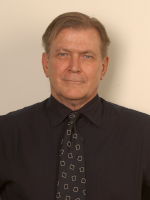
Terry McDonell retired from Time, Inc. as senior editorial advisor in 2012 after editing the Sports Illustrated Group’s magazines and websites for ten years. Over his career, McDonell edited numerous award-winning magazines, including Sports Illustrated, Golf Magazine, Outside, Rolling Stone, Esquire and Men’s Journal, and was inducted into the American Society of Magazine Editors Hall of Fame in 2012. He now heads the editorial group McDonell Company, which advises media companies and develops publishing, video and film ventures across multiple platforms. He most recently cofounded LitHub.com to report on and serve the literary community.
Widely published as a journalist, McDonell is also a novelist and poet who has written and produced for film and television. He published his memoir, The Accidental Life, in 2016. He donated his professional archive to the Briscoe Center in 2015. McDonell currently serves as president of the board of directors of the Paris Review Foundation and as a member of the Briscoe Center’s Advisory Council.
Margery Riker

Margery Baker Riker has been a television news producer for over 40 years. She recently left CBS News where she was a producer, executive producer, national editor and vice president. During her years at CBS News she was involved in producing special news coverage all around the world—including Moscow, Kiev, Austria, France, Italy, Argentina, Poland, Germany, Malta, Iceland, Japan and China— where she was part of the team reporting in Beijing on the student revolution at Tiananmen Square.
She oversaw the coverage from Point du Hoc, Normandy, of the 40th and 50th anniversaries of D-Day. In this country she covered every presidential campaign and reported from 16 political conventions. During these years she won three Emmy Awards.
Since leaving CB Margery has been producing travel documentaries for PBS.
She is on the board of the Lenox Hill Neighborhood House. She serves on committees of the Cooper Hewitt Smithsonian Design Museum and works as a volunteer for Bottomless Closet an organization that helps underserved women find jobs.
Bob Schieffer
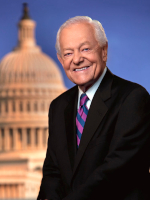
In 2019 Bob Schieffer marks half a century with CBS News. He joined the network in 1969 after a career that began as the night police reporter at his hometown newspaper, The Fort Worth-Star Telegram. In 1965 the newspaper sent him to Vietnam to track down Texans serving there. He found 220 of them and the stories proved so popular that on his return the local NBC television affiliate offered him a job as news anchor. That led to CBS News where he covered all the major Washington beats and anchored Face the Nation for a record 24 years. He officially retired in 2015, but CBS rehired him in 2016 to offer analysis during the presidential campaign, and he continues to offer occasional commentary and analysis.
Schieffer has won virtually every award in broadcast journalism including eight Emmys, and he is a member of the Broadcasting Hall of Fame. Texas Christian University designated its communication college the Bob Schieffer College of Communication. He was named a Living Legend by the Library of Congress.
Schieffer is a TCU graduate and was chosen a Harvard Fellow in 2015. He has been awarded 15 honorary degrees.
Lynn Goldberg
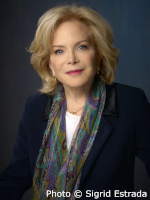
Lynn Goldberg has made it her life’s work to represent the best authors writing today and to bring their books to the attention of the public. She founded Goldberg McDuffie Communications in 1981 with this mission in mind; the firm now has business, digital, consulting, and young readers divisions as well as its core work with books for general audiences. Ms. Goldberg has been profiled by Publishers Weekly and PR Week and interviewed on Today, NBC Nightly News, and Public Radio International’s Marketplace. The New York Observer deemed her “the Brigadier General of big-book publicity,” and her innovative public relations campaigns have been cited by the New York Times, the Washington Post, the Los Angeles Times, Newsweek, Vanity Fair, The Economist, and The New Yorker.
Ms. Goldberg served for twenty-five years as a member of the board of Poets & Writers and has served on the executive board of PEN American Center. She has also served on the advisory boards of the New York Public Library and The New School’s MFA program in creative writing, on the Council for Literacy for Literacy Partners, and currently serves on the board of the Jerusalem International Book Fair.
Before starting her business, Ms. Goldberg was director of publicity for Farrar, Straus & Giroux and Pantheon Books and publicity manager of Random House. She was a teacher of African American studies in the New York City public high schools, and her interest in education continues.
John Marks

John Marks is a former producer for 60 Minutes, where he worked for five years with Morley Safer. Together, Marks and Safer covered stories on the reconstruction effort in the Balkans, Islamic terrorism in the Netherlands, the legal defense of Saddam Hussein, Russian musicians trying to make it big in Nashville, the German struggle with the Nazi past, medical breakthroughs with canines who can sniff cancer, and the rise of evangelical Christianity as a political force. Before 60 Minutes, Marks was a foreign and domestic correspondent for U.S. News & World Report. He has published three novels, including The Wall, a New York Times Notable Book in 1998, and Reasons to Believe, a hybrid work of memoir and investigative journalism on American evangelical Christianity, published in 2008 by Ecco. He is currently a staff executive producer at Left/Right, where he has worked as a show runner on series for A&E, History, National Geographic, The Smithsonian Channel, and Discovery.
Kathleen McElroy
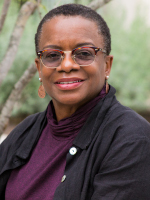
Kathleen McElroy is the director of the School of Journalism at The University of Texas at Austin’s Moody College of Communication.
She received her Ph.D. from The University of Texas in December 2014 after nearly 30 years as a professional journalist. At the New York Times she held various management positions, including associate managing editor, dining editor, deputy sports editor, and deputy editor of the website. She previously worked for The National, an all-sports daily, and Newsday on Long Island as well as the Austin American-Statesman, the Huntsville Item, and the Bryan-College Station Eagle in Texas.
While earning her doctorate, she was a Harrington Graduate Fellow and received awards for teaching and research. Her research interests include racial discourse, collective memory, sports media, and obituaries.
She previously was an assistant professor at Oklahoma State University, where she taught news reporting and sports media.
She received a Masters of Arts from New York University, with a focus on race and media, and a Bachelor of Arts in broadcast journalism from Texas A&M.
Horace Newcomb
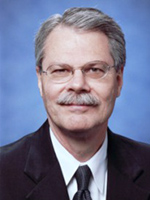
From 2001 until his retirement in 2013, Horace Newcomb was the Lambdin Kay Chair for the Peabodys, director of the George Foster Peabody Awards Programs, and Professor of Telecommunications in the Grady College of Journalism and Mass Communication at the University of Georgia. Prior to joining the Peabody program, he taught at colleges and universities in Iowa, Michigan, Maryland, and for 23 years at The University of Texas at Austin.
Newcomb is the author of TV: The Most Popular Art, coauthor with Robert S. Alley of The Producer’s Medium, and editor of seven editions of Television: The Critical View. In 1973–74 he was the daily television columnist for the Baltimore Morning Sun. From 1994–96 he served as curator for the Museum of Broadcast Communications (Chicago) with primary duties as editor of The Museum of Broadcast Communications Encyclopedia of Television. He served as executive producer for the annual Peabody Awards presentation luncheon at the Waldorf-Astoria in New York City from 2002–13.
His research, writing, and teaching interests are in media, society, and culture. Lectures and projects in Italy, Taiwan, Norway, Spain, Denmark, Finland, Sweden, Korea, Switzerland, and China have focused on cultural exchange and international media industries.
He held an Erasmus Mundus scholarship for intermittent research and consultation in Europe, 2009–11. Newcomb received a B.A. from Mississippi College in 1964. He studied as a Woodrow Wilson Fellow and University Fellow at the University of Chicago, receiving a M.A. in 1965 (General Studies in the Humanities), and a Ph.D. in English (American Literature) in 1969.
Jane Safer
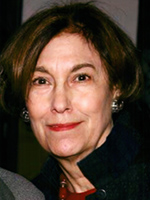
Jane and Morley met and married in London when Morley was CBS London Bureau Chief and Jane was a graduate student in Anthropology. They were married for 48 years, supporters in each other’s careers and artistic pursuits.
At the American Museum of Natural History in New York, Jane curated a major exhibition, Shells and Society, and authored a book, Spirals from the Sea: An Anthropological Look at Shells. Subsequently, she applied her anthropological knowledge to assist not-for-profits and government agencies in organizational development and strategic planning. She held senior positions at the New York City Department of Cultural Affairs, the New York Hall of Science, and Anthology Film Archives.
After the collapse of the USSR, Jane focused on Eastern Europe and the former Soviet Union, helping institutions and arts managers adapt to the radical changes in the political and economic environment. She worked with such institutions as the Andrei Sakharov Museum (Moscow) and the National Museum of Hungary and led seminars for arts managers in Budapest, St. Petersburg, and the Republic of Georgia.
She currently serves on the Boards of the American Theatre Wing and of the Smithsonian National Museum of the American Indian (New York City).
Jane has a B.A. from Radcliffe College/Harvard University and graduate degrees from Oxford University (Social Anthropology).
Sarah Safer

Ms. Sarah Safer, daughter of Jane and Morley Safer, graduated from Brown University and received a master’s degree in journalism from Columbia University.
Mark Updegrove
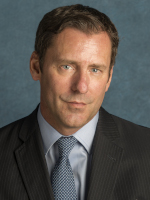
Mark K. Updegrove is an author, presidential historian, and the president and CEO of the Lyndon B. Johnson Foundation.
From 2009 to 2017, he was the director of the LBJ Presidential Library where, in 2014, he hosted the Civil Rights Summit, which included presidents Barack Obama, George W. Bush, Bill Clinton, and Jimmy Carter. He also oversaw an $11 million redesign of the library’s core exhibits. Earlier in his career, he served as the publisher of Newsweek and president of Time magazine’s Canadian edition.
Updegrove is the author of four books on the presidency including The Last Republicans: Inside the Extraordinary Relationship Between George H. W. Bush and George W. Bush and Indomitable Will: LBJ in the Presidency. As presidential historian for ABC News, he appears regularly on Good Morning America and This Week and has written for the New York Times, The Hill, Politico, The Daily Beast, Time, Parade, National Geographic, and Texas Monthly. He has conducted exclusive interviews with five U.S. presidents.
R. B. Brenner
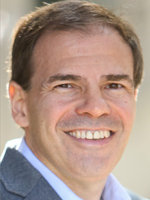
R.B. Brenner teaches journalism at Stanford University and serves as managing director of the Stanford Journalism and Democracy Initiative.
From fall 2014 through spring 2018, he was a professor and director of the School of Journalism at The University of Texas at Austin. Before then, he taught at Stanford for four years.
Brenner’s teaching is informed by his three-decade career as a reporter and editor. He held several editing positions at The Washington Post, including Sunday Editor, Metro Editor and Maryland Editor. He was one of the primary editors of The Post’s coverage of the Virginia Tech shootings, which was awarded a Pulitzer Prize in 2008, and played a leadership role in merging the digital and print newsrooms.
Barbara Cochran
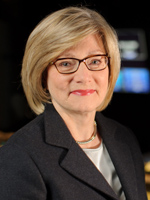
Barbara Cochran is the Curtis B. Hurley Chair in Public Affairs Journalism and director of the Missouri School of Journalism’s Washington Program. Cochran began her journalism career at the Washington Evening Star, rising from copy-desk trainee to become managing editor. She next served as vice president for news at NPR, where she directed the creation of Morning Edition. She then moved to NBC and became executive producer of Meet the Press, and then to CBS News as vice president and Washington bureau chief, the first woman to head a network bureau in D.C. She served for 12 years as president of the Radio Television Digital News Association. She has been a juror for the DuPont-Columbia Awards, the George Foster Peabody Awards, and awards of the National Press Club, National Press Foundation and White House Correspondents Association.
Betty Hudson
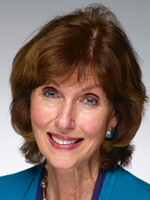
Betty Hudson is an award-winning communications industry leader with more than four decades of experience in every aspect of corporate and strategic communications, including consumer, employee, financial and cause related marketing, as well as brand and communications management. Having retired as Chief Communications Officer of the National Geographic Society at the end of 2015, Hudson now consults with business leaders, nonprofit organizations and for-profit entities on an array of marketing and communications issues.
Hudson was a member of the AFLAC Board of Directors from 1990 until 2018, serving as a member of the company’s Finance and Investment Committee, the Development & Acquisitions Committee, and as chair of the Corporate Social Responsibility and Sustainability Committee. She is co-chair of the Washington Chapter of Women’s Corporate Directors Foundation, an international organization of more than 3500 women serving on more than 8500 corporate and private boards worldwide, and is a member of the WCD global advisory council. Hudson also is a member of the Unreasonable Group Mentor Network.
Active in community affairs, Hudson serves on the board of trustees of the Kakenya Center for Excellence, a Masai girls boarding school in Kenya, Planet Forward, an environmental story-telling initiative of George Washington University, and The Grady College Board of Trust at the University of Georgia, from which she graduated. She is a past president of the New York Women’s Agenda and the Montclair Board of Education in Montclair, New Jersey, and a former chairman of the Inova Fairfax Children’s Hospital Quality Committee. She is also a former board member of the Inova Health Care Services board and the Associates Board of Directors of the Wolf Trap Foundation for the Performing Arts.
John Huey

John Huey has worked in journalism for 45 years as a reporter, author, editor, publishing executive, and podcaster. He began his career on newspapers in Georgia before spending 13 years at The Wall Street Journal. As editor of Fortune, he won numerous awards, including being named one of America’s top ten magazine editors by the Columbia Journalism Review. At Time Inc., he served as editor-in-chief for seven years, overseeing editorial content at the country’s largest magazine publisher, including Time, Fortune, People, and Sports Illustrated. As a Shorenstein Fellow at Harvard’s Kennedy School, he co-authored “Riptide-An Oral History of the Epic Collision Between Digital Technology and the News Business.” In 2013, Huey received the Gerald Loeb Lifetime Achievement Award for Distinguished Business and Financial Journalism from the UCLA Anderson School of Management. He is a member of the Council on Foreign Relations and for five years was a member of the board of jurors for the George Foster Peabody Awards at the University of Georgia.
Harry Jessell
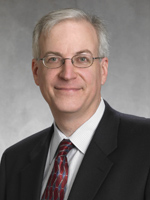
Prior to launching TVNewsCheck in January 2006, Harry Jessell worked for more than 25 years as a reporter and editor for B&C (formerly Broadcasting). As the magazine’s top editor from 1997 to 2004, Jessell moved the magazine from Washington to New York City and shifted its focus from law and regulation to programming and business. On the magazine’s editorial page and in his bi-weekly column, he argued for full First Amendment protections for and minimal government regulation of broadcasting and other electronic media. He continues that advocacy in his weekly Jessell at Large column on TVNewsCheck.
As a reporter at B&C in the 1980s and early 1990s, Jessell covered broadcast technology, cable TV, the Federal Communications Commission, Congress, and the federal courts. He was named executive editor in 1993 and editor in 1997.
Jessell graduated from Duquesne University in Pittsburgh, Pennsylvania, in 1976, with a BA in journalism. He and his wife Rosemary live in Pittsburgh.
Peter W. Klein
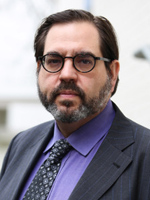
Peter W. Klein is the founder of the Global Reporting Centre, an independent journalism organization focused on producing and innovating journalism on under-reported issues around the world. He is former director of the University of British Columbia Graduate School of Journalism, where he continues to serve as an associate professor, teaching investigative and global reporting and leading research projects on global health and security. He was a producer at CBS News 60 Minutes and at ABC News, and was one of the founding producers of New York Times TV. He’s also an occasional opinion contributor to The Globe & Mail. He is the recipient of numerous journalism awards, including several Emmy, Murrow, and Sigma Delta Chi awards.
Peter Maass

Peter Maass has written about war, media, and national security for The New York Times Magazine, The New Yorker, and The Washington Post. He reported on both civilians and combatants during the conflicts in Iraq and Afghanistan. He is the author of Love Thy Neighbor: A Story of War, an award-winning memoir about the conflict in Bosnia, and he wrote Crude World: The Violent Twilight of Oil. Peter was awarded a Guggenheim Fellowship in 2012. He has taught writing at Princeton and Columbia universities, and had fellowships at the Shorenstein Center at Harvard and the American Academy in Berlin. A graduate of the University of California at Berkeley, he lives in New York City, where he is a senior editor at The Intercept.
Jon Meyersohn

Jon Meyersohn has served as a co-executive producer at Left/Right on two recent multi-hour series, one about Donald Trump and his family and one an in depth look at the events leading up to 9/11. Before that, Meyersohn served as Executive Producer and helped develop a program for Fusion, Real America with Jorge Ramos. Meyersohn was co-executive producer of Years of Living Dangerously, a climate change series that aired in 2016 on National Geographic.
Meyersohn is a veteran television news producer, most recently at ABC News, from 1992 to 2014. He has been a senior producer at ABC News Nightline, and a producer at ABC News Newsmagazines and Long Form. His productions have won multiple awards, and he has worked with some of the top correspondents and anchors in the field. Meyersohn began his career at CBS News as a producer for the Evening News with Dan Rather. It was at CBS News that he first came to revere Morley Safer’s work, starting as a desk assistant ripping wire copy on the radio desk where Morley would often do the hourly newscasts, cigarette burning as he banged out copy on an old typewriter.
Bill Minutaglio
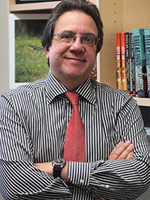
Bill Minutaglio is a longtime journalist, author, and winner of a PEN literary award. His work has appeared in The New York Times, The Washington Post, Esquire, The Guardian, The New Republic, and many other publications. He has written nine books, including a biography of President George W. Bush. He has also written books about America’s greatest manmade disaster, the assassination of President John F. Kennedy, the political obsessions of President Richard Nixon, and the deep strains of poverty and racism in Texas. He has been honored by The National Association of Black Journalists and The National Conference of Christians & Jews and was awarded The Outstanding Teaching Award by The University of Texas Regents. He has been interviewed by NPR, CNN, ABC, NBC, and BBC. His books have been optioned by Tom Cruise as well as the producers of Steven Spielberg’s movie The Post.
Alissa Quart

Alissa Quart is the executive editor of the Economic Hardship Reporting Project and co-founder of its present incarnation. She is the author of the recent book Squeezed: Why Our Families Can’t Afford America (Ecco/HarperCollins) and four other books, including Branded, Hothouse Kids, and the poetry book Monetized. She writes the Outclassed column for The Guardian and has written for many other publications, including for The New York Times and The New York Review of Books. She is a 2018 Emmy winner in documentary film and the recipient of Columbia University Graduate School of Journalism’s 2018 Alumni Award, as well as a 2010 Nieman fellow at Harvard University and a finalist for the National Magazine Award.
Margery Riker

Margery Baker Riker has been a television news producer for over 40 years. She recently left CBS News where she was a producer, executive producer, national editor, and vice president. During her years at CBS News, she was involved in producing special news coverage all around the world— including Moscow, Kiev, Austria, France, Italy, Argentina, Poland, Germany, Malta, Iceland, Japan, and China— where she was part of the team reporting in Beijing on the student revolution at Tiananmen Square.
She oversaw the coverage from Point du Hoc, Normandy, of the 40th and 50th anniversaries of D-Day. In this country, she covered every presidential campaign and reported from 16 political conventions. During these years, she won three Emmy Awards.
Since leaving CBS, Margery has been producing travel documentaries for PBS. She is on the board of the Lenox Hill Neighborhood House. She serves on committees of the Cooper Hewitt Smithsonian Design Museum and works as a volunteer for Bottomless Closet an organization that helps underserved women find jobs.
Margery and her husband, Stephen, live in New York City.
Jonathan Schienberg
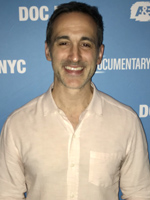
Jonathan Schienberg is an independent documentary film director and producer. His first feature length documentary, Colossus, was recently featured at the DOC NYC film festival in New York City. Most recently, he has worked with Al Jazeera as a director for their documentary program, Witness, and for the National Geographic Channel as a senior producer on the documentary series, Explorer, and as a director and producer on Years of Living Dangerously, an Emmy Award winning documentary series for National Geographic on global climate change. Before working in documentary, he produced stories for CBS News, 60 Minutes for nine years working closely with his mentor Morley Safer. Before CBS, Schienberg worked as a producer and assignment editor for CNN, and as a stringer and reporter for New York Newsday. His freelance work as a multimedia producer and writer has also been featured on PBS Frontline, CNN, in The New York Times, Foreign Policy Magazine, Columbia Journalism Review, The Center for Public Integrity, and the Chicago Tribune.
Paul Stekler
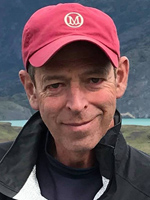
Paul Stekler is a documentary filmmaker whose films about American politics have won numerous awards and have all been aired nationally on public television. His films include Sundance Special Jury Prize winner George Wallace: Settin’ the Woods on Fire, the Peabody Award winning Vote for Me: Politics in America, three films that aired on PBS’s POV series (Last Man Standing: Politics Texas Style; Louisiana Boys: Raised on Politics; and Getting Back to Abnormal about post Katrina New Orleans), and two of the Eyes on the Prize civil rights history series films. His most recent feature project, Postcards from the Great Divide, was a series of short films about politics in nine states that launched on The Washington Post’s website. A new short film about Texas icons Ann Richards and Molly Ivins, Molly & Ann, just premiered at the Austin Film Festival.
Stekler has a doctorate in American politics (Harvard 1982) and was the Chair of the Department of Radio-Television-Film from 2010 to 2017, having previously come to The University of Texas at Austin in 1997 to reorganize that department’s film production program, which is now one of the top ten programs in the country. Stekler, who was Variety’s film school Mentor of the Year in 2014, previously founded UT LBJ School’s Center for Politics and Governance, worked as political pollster in Louisiana, and co-wrote Native American novelist James Welch’s non-fiction book Killing Custer, which was a The New York Times Notable Book of the Year. He also writes about politics and film, having published, among other places, in The Texas Observer and Texas Monthly. His opinion pieces have appeared in The Washington Post and the Los Angeles Times.
Deborah Amos
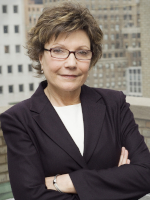
Deborah Amos covers the Middle East for NPR News. Her reports can be heard on NPR’s award-winning Morning Edition, All Things Considered, and Weekend Edition.
Amos travels extensively across the Middle East covering a range of stories including the rise of well-educated Syria youth who are unqualified for jobs in a market-drive economy, a series focusing on the emerging power of Turkey, and the plight of Iraqi refugees.
In 2009, Amos won the Edward Weintal Prize for Diplomatic Reporting from Georgetown University and in 2010 was awarded the Edward R. Murrow Life Time Achievement Award by Washington State University. Amos was part of a team of reporters who won a 2004 Alfred I. duPont-Columbia Award for coverage of Iraq. A Nieman Fellow at Harvard University in 1991 to 1992, Amos was returned to Harvard in 2010 as a Shorenstein Fellow at the Kennedy School.
In 2003, Amos returned to NPR after a decade in television news, including ABC’s Nightline and World News Tonight and the PBS programs NOW with Bill Moyers and Frontline.
When Amos first came to NPR in 1977, she worked first as a director and then a producer for Weekend All Things Considered until 1979. For the next six years, she worked on radio documentaries, which won her several significant honors. In 1982, Amos received the Prix Italia, the Ohio State Award, and a DuPont-Columbia Award for “Father Cares: The Last of Jonestown” and in 1984 she received a Robert F. Kennedy Journalism Award for “Refugees.”
From 1985 until 1993, Amos spend most of her time at NPR reporting overseas, including as the London Bureau Chief and as an NPR foreign correspondent based in Amman, Jordan. During that time, Amos won several awards, including an Alfred I. duPont-Columbia Award and a Break thru Award, and widespread recognition for her coverage of the Gulf War in 1991.
A member of the Council on Foreign Relations, Amos is also the author of Eclipse of the Sunnis: Power, Exile, and Upheaval in the Middle East (Public Affairs, 2010) and Lines in the Sand: Desert Storm and the Remaking of the Arab World (Simon and Schuster, 1992).
Amos began her career after receiving a degree in broadcasting from the University of Florida at Gainesville.
Joseph Armstrong

For more than 35 years, Joseph G. Armstrong was the publisher of ten magazines in New York City, including New York, Rolling Stone, New West, Saveur, Worth, and Civilization. In 2001, he joined ABC News as an advisor to the president and worked with anchor Peter Jennings on World News Tonight, his specials, his books, and on their round-the-clock coverage of 9/11. Armstrong also worked for several years with Diane Sawyer on her programs before hanging up his spurs and devoting himself to being a full-time volunteer.
Armstrong was born in Fort Worth, raised in Abilene, and earned a journalism degree at Trinity University and a law degree from The University of Texas at Austin. His volunteer work includes Paul Newman’s Hole in the Wall Gang Camp, the Ann Richards School for Young Women Leaders, and the Leadership Council for the Robert F. Kennedy Center for Justice and Human Rights. For the past seven years he has worked at Jordan River Village in Israel for children with life-threatening illnesses and ten years at The Garden Tomb, a Christian mission in Jerusalem.
In addition to being on the Advisory Council and a founding member of the Director’s Circle at the Briscoe Center, Armstrong is on the Advisory Council at UT Press and he has been on the Advisory Council at UT’s Harry Ransom Center for ten years.
Tom Brokaw
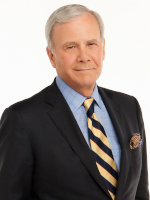
Tom Brokaw has spent his entire distinguished journalism career with NBC News beginning in 1966 in the Los Angeles bureau where he covered Ronald Reagan’s first run for public office, the rise of the Sixties counter culture, the assassination of Bobby Kennedy and the 1968 presidential campaign.
From Los Angeles, Brokaw went to Washington as the White House correspondent during Watergate and as the principal back up for John Chancellor as anchor of NBC Nightly News. Next stop: New York and the TODAY show followed by his appointment as anchor and managing editor of NBC Nightly News with Tom Brokaw.
He took over Meet the Press for the 2008 campaign when his close friend and colleague Tim Russert died.
In addition to his daily newsgathering responsibilities, Brokaw reported on more than thirty documentaries covering subjects ranging from AIDS, Los Angeles gangs, race, education, medicine, immigration, and global warming.
He has an impressive list of firsts, including the first interview with Mikhail Gorbachev; the first network report on human rights abuses in Tibet accompanied by an exclusive interview with the Dalai Lama; the only American network anchor to report from Berlin the night the Berlin Wall came down, which earned him The Order of Merit from the German government.
In 1998 Brokaw published his first book, The Greatest Generation, one of the most popular nonfiction books of the 20th century. He followed that with six other books, including Boom! Voices of the Sixties, The Time of Our Lives, and, most recently, A Lucky Life Interrupted: A Memoir.
He is also a popular essayist for publications ranging from The New York Times to Rolling Stone and a wide assortment of other periodicals and newspapers.
Brokaw has won every major award in his craft, including Peabody, Duponts, Emmys, and lifetime achievement recognition. In the spring of 2016 Brokaw was awarded the coveted Legion of Honor by the French government for his extensive reporting on World War II. In November of 2014 Brokaw was awarded the Medal of Freedom by President Barack Obama, the highest civilian award given to those who made “meritorious contribution to the security or national interests of the United States, world peace, cultural or other significant public or private endeavors.”
Ralph Engelman

Dr. Ralph Engelman is senior professor of journalism and communication studies at Long Island University Brooklyn and faculty coordinator of the George Polk Awards. A journalism historian, he is the author of Friendlyvision: Fred Friendly and the Rise and Fall of Television Journalism (Columbia University Press, 2009), with a foreword by Morley Safer. In October and November 2000, Engelman conducted a two-part interview with Morley Safer for the Archive of American Television, a digital history project of the Academy of Television Arts and Sciences for which he served as journalism consultant.
Bills Owens

Bill Owens is currently the top executive in charge of 60 Minutes. He has performed crucial functions for 60 Minutes and its online presence for over a decade as the broadcast’s number two executive. He continues to guide the program editorially and manage its large staff of reporters and editors as the news magazine remains a weekly top-ten broadcast in its 51st season. He has overseen the production of nearly a thousand 60 Minutes segments from conception through screening and airing.
Susan Smith Richardson
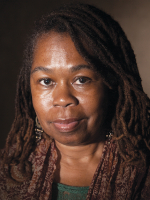
Susan Smith Richardson is editorial director at Solutions Journalism Network, where she oversees a reporting initiative focused on how people and institutions are seeking to reinvigorate democracy in communities across the country. She has nearly three decades of experience as an editor and opinion writer, including at the Chicago Tribune, the Sacramento Bee, and the Austin American-Statesman. Most recently, Richardson was the editor and publisher of The Chicago Reporter, a small nonprofit newsroom that investigates race, poverty, and income inequality. In 2002, she was a Nieman Fellow at Harvard University and holds a M.P.A. from Harvard’s Kennedy School of Government and a B.S. in Radio, TV and Film from The University of Texas at Austin.
Amy Villarreal

Amy Villarreal is the vice president and general manager of KEYE-TV, the CBS and Telemundo affiliates in Austin, Texas, where she has served for the past 13 years. Prior to KEYE-TV, she was the vice president and general manager of KVEO in the Rio Grande Valley. A graduate of The University of Texas at Austin, she is a founding member of the Director’s Circle at the Briscoe Center and currently serves on the UT Austin Development Board and the boards of Rodeo Austin, Advisory Council for Partnerships with Children and the Headliners Foundation of Texas. Her past board experience includes nine years on the Texas Association of Broadcasters Board, Texas Broadcast Education Foundation, Caritas of Austin, and executive board member of the Greater Austin Chamber of Commerce.
Nicole Winfield
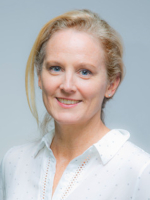
Nicole Winfield is the chief correspondent for The Associated Press in Italy and the Vatican. Nicole began her career with AP in 1992 in New York City and was based in Miami and at the United Nations before being posted to Rome in 2001. Most of her coverage focuses on the Vatican, though she has also reported on conflicts in the Gulf, Afghanistan and the Israel/Palestinian territories. She teaches a writing class at Temple University’s Rome campus and lectures visiting student groups about journalism and the Vatican. A graduate of the Johns Hopkins University, she is married and has three children.
Fred Young

Fred I. Young retired from his post as Senior Vice President, News, for Hearst Television, Inc., in December 2008, concluding a distinguished 46-year career.
As Senior Vice President, News, Young oversaw news operations at 29 TV stations in diverse markets throughout 22 states, as well as the Hearst Television Washington, D.C. News Bureau.
During Young’s tenure as Senior VP of News, the Hearst station group earned an unrivalled five consecutive USC Annenberg Walter Cronkite Awards for excellence in television political journalism. The Hearst stations have been the recipients of many of television’s other highest awards for excellence in journalism, including the Peabody Award, duPont-Columbia Journalism Award, the Sigma Delta Chi Award, the National Headliner Award, the Edward R. Murrow Award and Emmy awards.
In April 2009, the Radio-Television News Directors Association presented Young with the Paul White Award, its highest honor. Young has received other awards including a First Amendment Service award from the RTNDA, honors from the PA Broadcasters and the Associated Press Broadcasters and a distinguished alumnus award from Duquesne University in Pittsburgh. Recently he received the “Anderson” Communications Contributor award at the Bellisario School of Communications at Pennsylvania State University.
Young joined Hearst Broadcasting in October 1962, serving for 25 years at WTAE-TV, Pittsburgh in news and station management roles, including VP/GM. He joined the Hearst corporate staff in New York in 1986.
His retirement activities have included adjunct teaching assignments at Temple University, broadcast journalism judge for the William Randolph Hearst Foundation Collegiate Journalism Awards, a juror for the George Foster Peabody Awards and a member of the Accrediting Council on Education in Journalism and Mass Communications.
Recently, Hearst Television created a news producing fellowship in Fred’s honor, competitively available to young professionals seeking careers in TV news production.
Steve Kroft
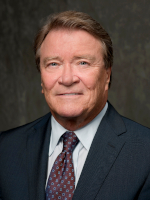
Steve Kroft’s relationship with Morley Safer began in the early 1980s and grew over the 27 years they worked together as correspondents on 60 Minutes, the most watched and influential television news program in history. Like Safer, Kroft worked for decades contributing the unique stories and timely investigations that earned the news magazine its storied reputation. Kroft’s tough exit interview with President Barack Obama was widely debated as was his rare interview with the president of Turkey amid policy disagreements between his country and the U.S. His report on the 28 classified pages of the Congressional 9/11 report showed possible Saudi government support of the hijackers. He is the only 60 Minutes correspondent to win two Peabody Awards in the same year, bringing his total number of television’s most prestigious award to five. One was for a story on the vulnerabilities of infrastructures to computer hackers and the other on the enormous sums of money spent prolonging the lives of dying Americans. Kroft has numerous Emmy Awards and won television journalism’s highest honor, the DuPont Columbia University Journalism silver baton, twice. He began his journalism career in Vietnam, serving with Pacific Stars and Stripes.
Lesley Stahl
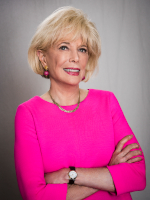
Lesley Stahl is one of America’s most honored and experienced broadcast journalists. Her rich career has been marked by political scoops, surprising features and award-winning foreign reporting, a body of work that won her the RTDNA’s 2015 Paul White award for lifetime achievement. She has been a 60 MINUTES correspondent since March 1991 and began her 27th season on the broadcast in September 2018. She is the author of the best-selling book Becoming Grandma, The Joys and Science of the New Grandparenting.
Stahl’s revealing interview with Secretary of Education Betsy DeVos was the subject of headlines and political talk shows. She has landed two interviews with President Donald Trump, his first post-election television interview and more recently a one-on-one at the end of his second year in office. She earned an Emmy for a shocking 2015 report on how some police recruit vulnerable young people for dangerous jobs as confidential informants. Her interview with the widow of a slain hostage offered a rare look inside the technically illegal process of negotiating with terrorists, and won Stahl her 13th Emmy.
In 2013 Stahl gained unprecedented access to the U.S.’s Guantanamo Bay prison facilities for a two-part series honored with an Edward R. Murrow Award. In 2014 she won two Emmys, one for the Guantanamo series and another for an eye-opening story about China’s huge real estate bubble. Later in 2014, she was honored by the International Center for Journalists with its Founders Award for Journalistic Excellence.
Her uplifting feature “Gospel for Teens” was recognized with two Emmy Awards in 2012.
That same year, her whistleblower interview with F-22 Raptor pilots provided the first public personal accounts of the fighter’s oxygen system troubles, spurring the secretary of defense to take action. Stahl’s interview of a former CIA Clandestine Services chief about the use of “enhanced interrogation techniques” on al Qaeda operatives sparked a national debate.
Stahl’s two reports from the Middle East in the fall of 2010, “Unfinished Business” about Iraq and “City of David” about the Israeli-Palestinian conflict, were honored by the Overseas Press Club for Best Interpretation on International Affairs. Her look at the life of a young musical savant won her an Edward R. Murrow Award for feature reporting for her 2008 follow-up on the boy, Rex Lewis-Clack. Her interviews with the families of the Duke Lacrosse players exonerated in a racial rape case and with Nancy Pelosi before she became the first woman to become speaker of the U.S. House were big scoops for 60 MINUTES and CBS News in 2007. Her high-profile 60 MINUTES interviews with former Bush administration officials Paul O’Neill and Richard Clarke ranked among the biggest news stories of 2004. In a December 2002 60 MINUTES interview with Stahl, Al Gore revealed he would not run for president.
Prior to joining 60 MINUTES, Stahl served as CBS News White House correspondent – the first woman to hold that job – during the Carter and Reagan presidencies and part of the term of George H. W. Bush. Her reports appeared frequently on the CBS EVENING NEWS, first with Walter Cronkite, then with Dan Rather, and on other CBS News broadcasts.
During much of that time, she also served as moderator of FACE THE NATION, CBS News’ Sunday public-affairs broadcast (September 1983–May 1991). For FACE THE NATION, she interviewed such newsmakers as Margaret Thatcher, Boris Yeltsin, Yasser Arafat and virtually every top U.S. official, including George H. W. Bush and Vice President Dan Quayle.
She was co-host with Charles Kuralt of “America Tonight,” a daily CBS News late-night broadcast of interviews and essays (October 1990-March 1991).
Her experiences covering Washington for more than 20 years became the subject of her book Reporting Live (Simon & Schuster, 1999). The stories she has covered since joining CBS News in the Washington bureau in 1972 range from Watergate through the 1981 assassination attempt on President Reagan to the 1991 Gulf War. She has reported on U.S.-Russian summit meetings and the economic summits of the industrialized countries, as well as the national political conventions and election nights, throughout her career.
Stahl anchored several CBS News documentaries, including “The Politics of Cancer” and “In the Red Blues,” about the budget deficit, both for “CBS Reports.”
Other Emmy wins include a Lifetime Achievement Emmy received in September 2003 and her first Emmy, won for reporting on a bombing in Beirut for the CBS EVENING NEWS in 1983. Her FACE THE NATION interview with Sen. John Tower won Stahl her second statuette. Her 60 MINUTES reports “How He Won the War,” about former FDA Commissioner David Kessler’s battle with the tobacco industry, and “Punishing Saddam,” which exposed the plight of Iraqi citizens, mostly children, suffering the effects of the United Nations sanctions against Iraq, were both Emmy winners. “Punishing Saddam” also won Stahl electronic journalism’s highest honor, an Alfred I. duPont-Columbia University Silver Baton.
In 1996 Stahl was awarded the Fred Friendly First Amendment Award, given by Quinnipiac College, in recognition of her journalistic achievements. In 1990 she was honored with the Dennis Kauff Journalism Award for lifetime achievement in the news profession.
Stahl was born Dec. 16, 1941, in Swampscott, Mass., and graduated cum laude in 1963 from Wheaton College, where she served on the board of trustees. She currently serves on the board of the New York City Ballet. She and her husband, author Aaron Latham, live in New York. They have a daughter, Taylor.
Pam Colloff
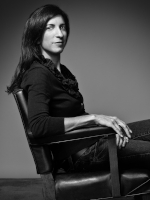
Pamela Colloff is a senior reporter at ProPublica and a writer-at-large at The New York Times Magazine. She covers criminal justice with a focus on wrongful convictions. Colloff has been nominated for six National Magazine Awards – more than any other female writer in the award’s history – and won for feature writing in 2013. The Nieman Foundation for Journalism at Harvard University awarded her the Louis M. Lyons Award for Conscience and Integrity in Journalism in 2014. She spent 2017 exploring the subject of junk forensic science in the criminal justice system and how it can result in wrongful convictions.
Lisa Falkenberg
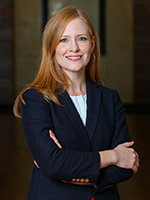
Lisa Falkenberg is the Houston Chronicle’s Editor of Opinion. Before that, she wrote a metro column for more than a decade that explored topics ranging from politics to criminal justice. In 2015, Falkenberg was awarded the Pulitzer Prize for commentary, as well as the American Society of News Editors’ Mike Royko Award for Commentary/Column Writing for a series that exposed a wrongful conviction in a death case and led Texas lawmakers to reform the grand jury system. Raised in a small South Texas town, Falkenberg is the daughter of a truck driver and a homemaker, and the first in her family to go to college. She earned a journalism degree from the University of Texas at Austin in 2000. She started her career at The Associated Press, working in the Austin and Dallas bureaus. She joined the Chronicle in 2007 as a roving state correspondent. Falkenberg is the mother of two daughters, ages 9 and 6.
Neal Spelce
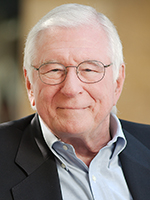
Neal Spelce is a Distinguished Graduate of the Moody College of Communication at The University of Texas at Austin. He has either interviewed, photographed, or associated with presidents Truman, Kennedy, Johnson, Nixon, Ford, Carter, Bush, Clinton, and Bush. He received the nation’s highest award for radio reporting from the Society of Professional Journalists and the National Headliners First Place Award for “outstanding television news reporting.” Additionally, the Austin Headliners Club honored him for his courage and bravery in reporting live from the UT Austin campus during the coverage of the sniper, Charles Whitman.
Mr. Spelce was recently recognized when the Moody College named the Neal Spelce Broadcast Journalism Studio in his honor. He has donated to the Briscoe Center more than 300 90-second TV vignettes about America that his company produced and placed in more than 100 US markets under the titles of “An American Moment™ with Charles Kuralt” and then, following Kuralt’s death, “An American Moment™ with James Earl Jones.” He currently operates an active communications consultancy and writes about Austin and Texas in his online newsletter, The Neal Spelce Austin Letter (www.AustinLetter.com).
Warren Lustig
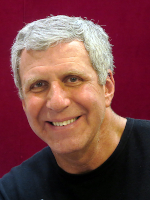
Warren Lustig is a producer/editor with the most respected television news magazine in history, 60 Minutes. He’s a valuable contributor to the broadcast and has worked closely with many of the CBS greats: Mike Wallace, Morley Safer, Ed Bradley, Lesley Stahl, Bob Simon, Charles Kuralt, and Walter Cronkite.
Lustig’s creative flair, impeccable attention to detail, and sensitive intuition have made his stories stand out from the rest. It’s no wonder he remains in such high regard and has been recognized so many times for his work: 18 Emmy Awards, 2 Peabody Awards, and 1 Columbia DuPont award. Among his many story credits are “The Last Man Out,” a profile on the last man found alive in the aftermath of 9/11, and “Lightning in a Bottle,” a feature on Pixar animation studios which found Lustig in a rare, one-on-one meeting with studio head Steve Jobs.
Lustig began his career in the 1970s as a news cameraman, shooting on the streets of New York. National exposure came with a trip to Harrisburg, Pennsylvania, and coverage of the 1979 nuclear accident at Three Mile Island. In 1980, an opportunity in Florida with the show PM Magazine meant a move to Miami and a switch from cameraman to editor. It was a change that would change and propel his career. In less than two years, he won his first two Emmy Awards and soon found himself back in New York working for the prestigious “Channel 2 News”. Recognized for his unique style, he quickly moved to The CBS Evening News with Dan Rather and began traveling around the world covering world changing events like Operation Desert Storm in Kuwait, the fall of the Berlin Wall, and the student uprising in Beijing’s Tiananmen Square. Stateside, he covered countless presidential campaigns, natural and man-made disasters, and actually covered the discovery of the RMS Titanic.
His talents took him beyond the news division. In the 1990s, he produced high-end campaigns for the network’s promotion department, worked with CBS Sports on their hallmark shows The NFL Today and the NCAA Final Four Championship, and most notably covered three consecutive Winter Olympic Games in Albertville, France; Lillehammer, Norway; and Nagano, Japan.
Beyond broadcasting, Lustig developed a mentorial program for CBS News and took his “hands on” seminar to over 100 CBS stations around the country. He also created “TV Boot Camp” for The City University of New York, a two-week crash course that put students in the drivers’ seat, turning them into producers, camera people, and reporters for a student version of 60 Minutes.
It’s been a long and varied career, highlighted by 36 years with CBS. Lustig still has the same boundless energy and enthusiasm for television and great story telling as he did in high school, and has no intention of slowing down. He is married to his wife Karen and has four children. He proudly holds a BS degree from Brooklyn College.
Al Tompkins
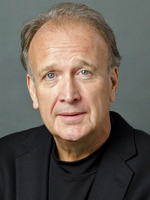
Al Tompkins is a senior faculty member for broadcast and online at The Poynter Institute, the world’s premiere school for journalists. For nearly 30 years, he worked as a photojournalist, reporter, producer, anchor, assistant news director, special projects/investigations director, documentary producer, and news director. He is an FAA licensed Part 107 drone pilot.
Tompkins has trained thousands of television news producers, reporters, photojournalists, and managers in his One-Day Storytelling Workshops in 49 states, Canada, Denmark, Iceland, Egypt, Ecuador, the Cayman Islands, and South Africa. He has taught and coached print newsrooms in the U.S. and abroad on how to investigate and report, build interactive news websites, how to use video more effectively online, and how to manage ethical issues.
In 2018, The National Press Photographers Association awarded Tompkins the Sprague Award, the highest honor that NPPA bestows on industry leaders.
Tompkins was inducted into the Kentucky Journalism Hall of Fame, and in 2008 was awarded The Governor’s Award, the highest honor given by the National Academy of Television Arts and Sciences. During his two and a half decades as a journalist, Tompkins has won the National Emmy, the Peabody Award (group award), the Japan Prize, the American Bar Association’s Silver Gavel for Court Reporting, seven National Headliner Awards, two Iris Awards, and the Robert F. Kennedy Award.
His clients include NBC, CNN, The Weather Channel, CBS, Scripps station group, NBC Broadcast Station Group, Telemundo, Univision, CBC Canada, Global TV Canada, SABC South Africa, Cox Media, and scores of other major news organizations, local TV stations, public radio stations, online and social media newsrooms and newspapers. Tompkins is often quoted in newspaper, TV, network, public radio and cable coverage of media stories including NBC Nightly News, CBS Evening News, NPR’s Morning Edition and All Things Considered, The Washington Post, The New York Times, the Boston Herald, and hundreds of others.
He holds an MA in Digital Journalism and Design from the University of South Florida.
Tompkins is the author of the January 2017 Third Edition of Aim for The Heart: A Guide for TV Producers and Reporters, which was adopted by more than 150 universities as their main broadcast writing textbook. He co-authored four editions of the Radio and Television News Directors Foundation’s Newsroom Ethics workbook.
